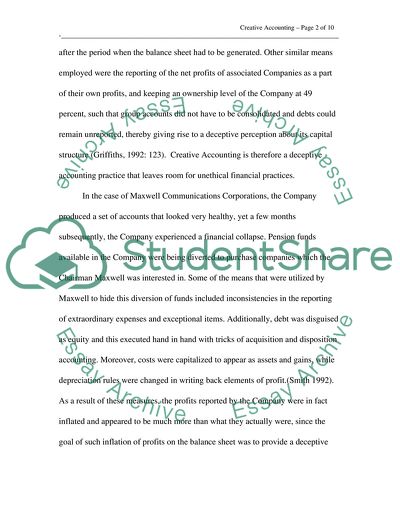Cite this document
(The Notion of Creative Accounting Case Study Example | Topics and Well Written Essays - 2170 words, n.d.)
The Notion of Creative Accounting Case Study Example | Topics and Well Written Essays - 2170 words. Retrieved from https://studentshare.org/finance-accounting/1541828-creative-accounting-and-corporate-governance
The Notion of Creative Accounting Case Study Example | Topics and Well Written Essays - 2170 words. Retrieved from https://studentshare.org/finance-accounting/1541828-creative-accounting-and-corporate-governance
(The Notion of Creative Accounting Case Study Example | Topics and Well Written Essays - 2170 Words)
The Notion of Creative Accounting Case Study Example | Topics and Well Written Essays - 2170 Words. https://studentshare.org/finance-accounting/1541828-creative-accounting-and-corporate-governance.
The Notion of Creative Accounting Case Study Example | Topics and Well Written Essays - 2170 Words. https://studentshare.org/finance-accounting/1541828-creative-accounting-and-corporate-governance.
“The Notion of Creative Accounting Case Study Example | Topics and Well Written Essays - 2170 Words”, n.d. https://studentshare.org/finance-accounting/1541828-creative-accounting-and-corporate-governance.


